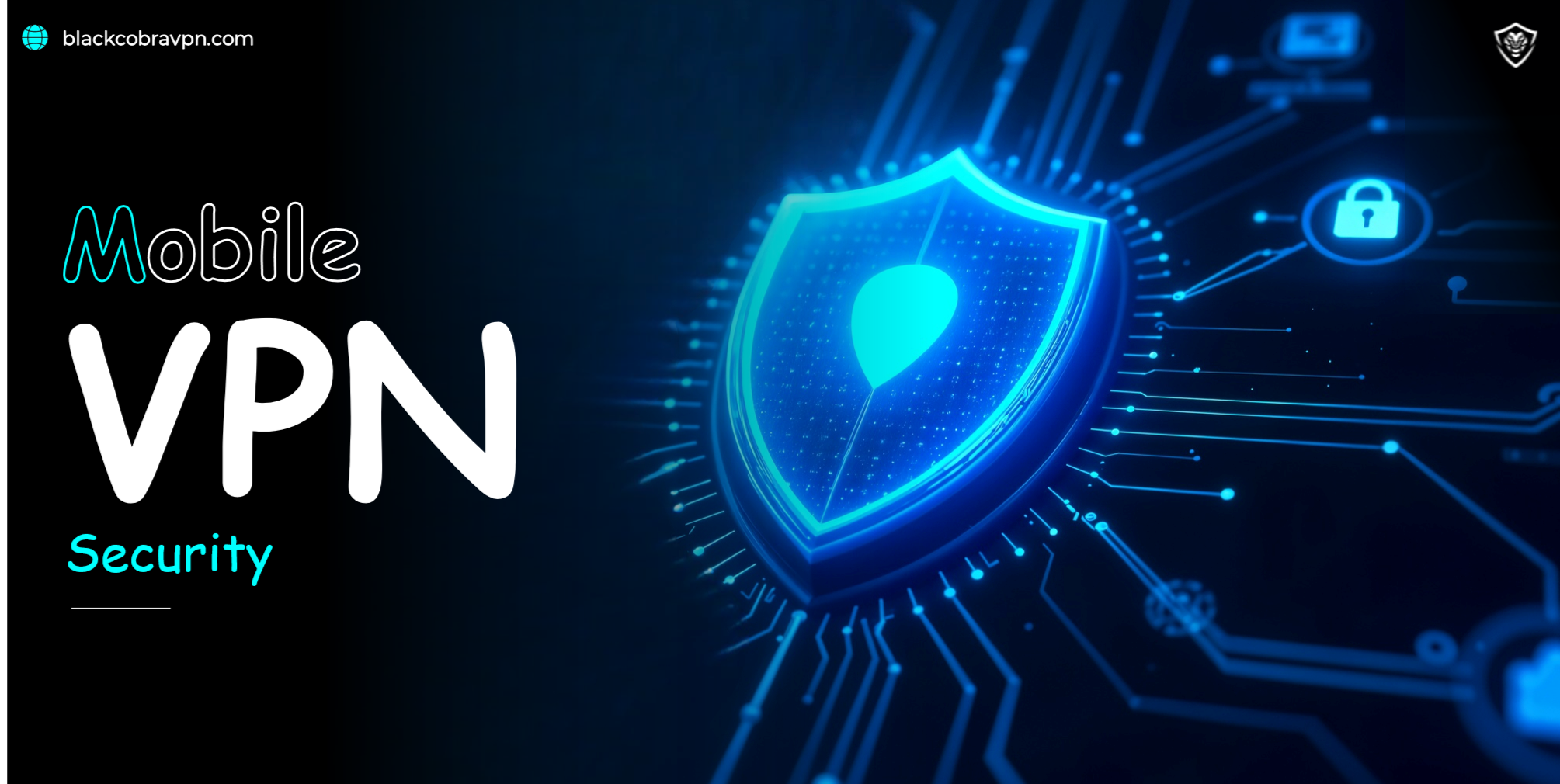Date Published:
September 11, 2025

Mobile devices in today's hyper-connected world are nearly mandatory. Smartphones and tablets, even the low-end ones, handle large swaths of sensitive data in emails, online banking, video streaming, and daily business transactions. Yet, as more people use mobile phones, hacks are increasing. Yet, as more people use mobile phones, hacks are growing. As of 2023, a Forbes advisors study found that 40% of respondents had their information compromised while using public Wi-Fi. The risk is no longer theoretical; it is a growing reality that affects millions worldwide.
This is where Mobile VPN security comes in. By encrypting your internet connection and routing it through a secure server, a Mobile VPN (Virtual Private Network) protects your online activity from hackers, cyber threats, and government surveillance.
This guide will explain how Mobile VPNs work, why they are essential, and how to choose the best one to protect your personal and professional data.
A Mobile VPN forms an encrypted tunnel between your device and the outside world. Whatever you send or receive goes through this tunnel, so it is tough for hackers, third parties, or your Internet Service Provider (ISP) to sniff out or alter your data.
Although VPNs are typically good, mobile VPNs are targeted directly at smartphones and tablets, making them the ideal app to track you when you hop onto Wi-Fi or cellular phones. Ensure your data is always encrypted, whether you're on whichever network you have.
Encryption is at the heart of VPN security. A Mobile VPN scrambles your data into a complex code only your intended recipient can decode. This means even if hackers manage to intercept your data, they won’t be able to read or misuse it.
Mobile VPNs use strong encryption protocols such as:
Connecting a Mobile VPN lets your data go through an encrypted, remote server in a distant location. This middle server is responsible for relaying your device from the internet. What websites and services will see instead of your real visible IP is that of the VPN server.
This will keep you private and anonymous but still allow you to bypass the geo-blocking content on streaming services (social media and web).
Cybercriminals always seek ways to steal sensitive data like login credentials, financial information, and personal files. A Mobile VPN shields you from:
Public Wi-Fi hotspots - whether at coffee shops, airports, or hotels are a hacker’s playground. These networks are often unsecured, allowing cybercriminals to snoop on your activity, steal passwords, or even install malware on your device.
Ever tried to watch a show or access a website that’s unavailable in your region? The content of several countries and streaming services is location-restricted.
With a Mobile VPN, you can:
Websites, advertisers, and ISPs track your online activity to collect personal data. A Mobile VPN hides your IP address and browsing history, making it harder for third parties to track your movements.
Ever noticed that your internet slows down when streaming videos or downloading files? Some ISPs intentionally slow down certain types of internet traffic. Mobile VPN conceals your online activities from your ISP to stop them from slowing down your connection and allowing easier streaming/jumps/fast downloads.
A MitM attack occurs when a hacker sits between two parties and can listen to or change the data that is sent between the parties. That is extremely dangerous when on public Wi-Fi, as anybody between your computer and the network is a hacker of whatever you log in with(password), your credit card number, or private messages.
Protective Measures:
Data breach is defined as hackers gaining access to databases and stealing usernames, passwords, and credit card theft, not only authenticates but also personal ID details. Poor security of mobile applications, cloud storage, and enterprise databases are generally responsible for these breaches.
Protective Measures:
Malware: Fies like spyware-R - this infects devices to steal files from breaking the system.
Phishing: Using electronic communication to fraudulently obtain detrimental sensitive data by pretending to be a source worthy.
Protective Measures:
Perform hack counter of Wi-Fi spoofing by tricked into joining the hacker of the opponent's Wi-Fi network. The attacker would intercept the data or malware if there were a connection at that time.
Protective Measures:
Mobile VPN that uses the newest data and security encryption protocols so your data is armored like a good football player. Consider VPNs that support:
Privacy is a top priority as an end user. Others may log user data, which they could sell or simply hand over to authorities on request. A good VPN must have a no-logs policy, and this means that:
The VPN server's number and position influence speed and how solid the connection is & remove geo-restrictions from services. A good mobile VPN would be:
A mobile VPN must be user-friendly, even for the non-tech-savvy. Things to Think About:
At any time, technical issues can come up, so the VPN provider should have:
Online security is not a luxury but a key to survival in the digital age. With data breaches, malware, and Wi-Fi spoofing rising as a cybersecurity threat, robust encryption and catching connections are ever so significant to safeguarding personal info. Enforcing absolute no-log policies, uncompromised security protocols, and being mindful of digital risks will protect privacy. Being savvy to online threats and staying secure and safe online is about having the right tools and knowing how to use those available around the corner to change the hacker game.